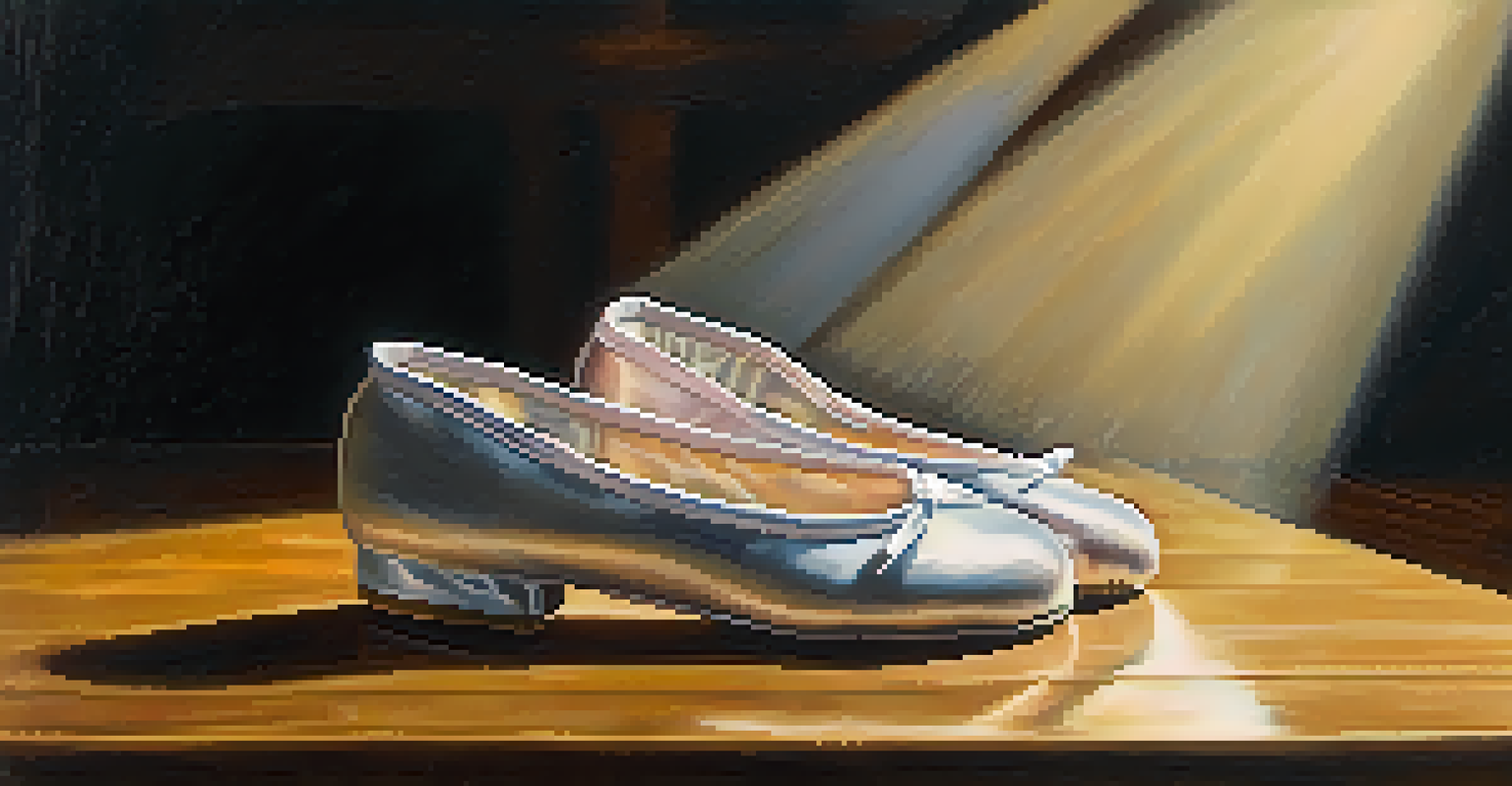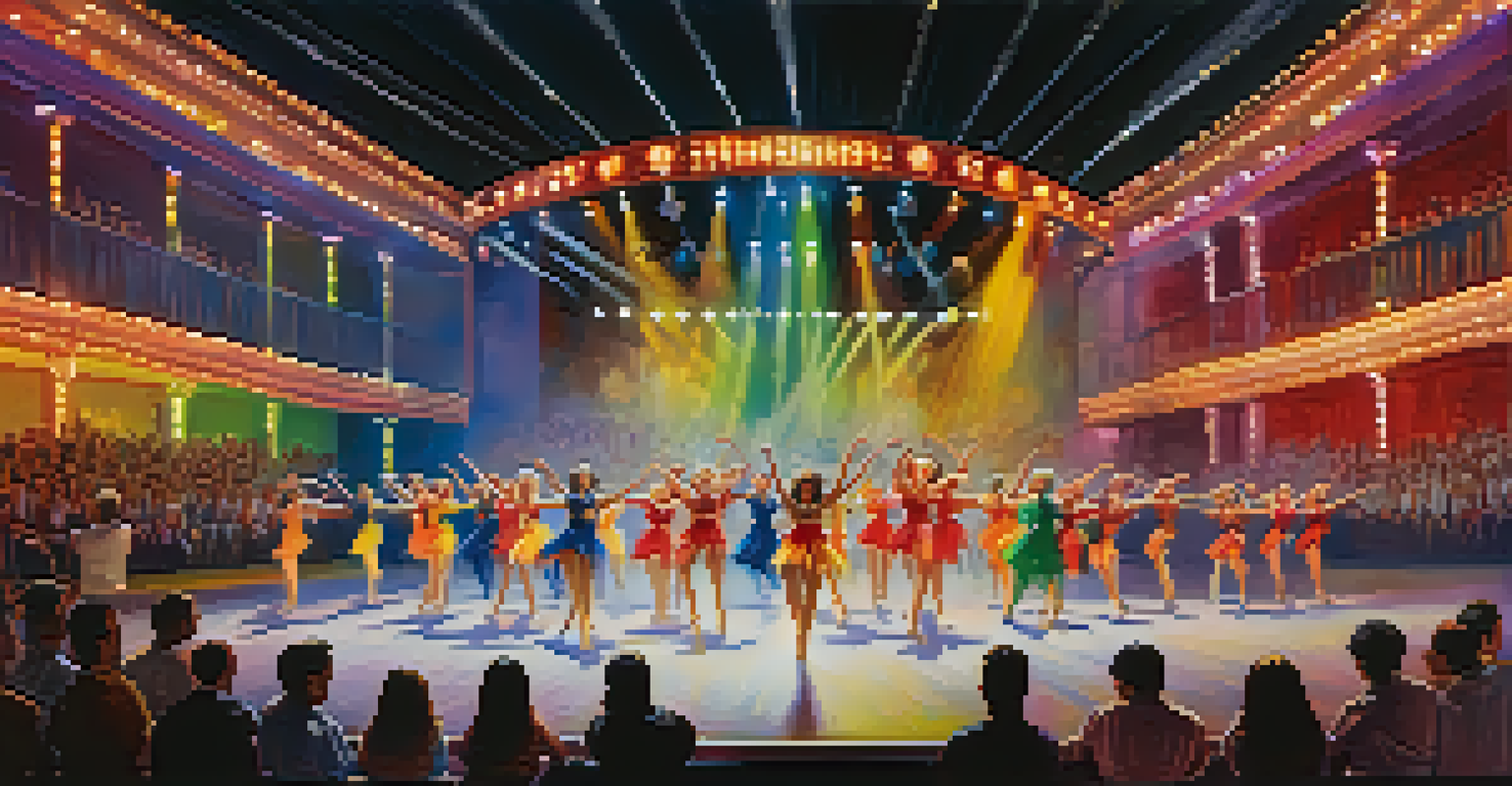Preparing Your Dance Routine: Tips for Competition Readiness

Understanding the Competition Requirements is Key
Before diving into your dance routine, it's crucial to grasp the specific requirements of the competition. Each event may have different rules regarding style, duration, and even attire. Familiarizing yourself with these guidelines ensures that your hard work aligns perfectly with what the judges expect.
Success is where preparation and opportunity meet.
Take time to read through the competition packet thoroughly. This will not only help you avoid any last-minute surprises but also allow you to incorporate elements that judges often look for, such as creativity and technical execution. Think of it as the foundation upon which you'll build your masterpiece.
With a clear understanding of the requirements, you can tailor your routine to not only fit the criteria but also to shine. This strategic approach can give you an edge over competitors who might overlook these details.
Creating a Structured Practice Schedule
Consistency is essential when preparing for a dance competition. Establishing a structured practice schedule helps you manage your time and ensure that you are focusing on the right elements of your routine. Think of your schedule as a roadmap guiding you toward success.

Break down your routine into manageable sections, dedicating specific days to work on choreography, technique, and performance aspects. This way, you're not overwhelming yourself but gradually building up your confidence and skill level. It’s like training for a marathon; you wouldn't just run it all at once!
Understand Competition Rules
Familiarizing yourself with competition requirements helps ensure your routine aligns with judges' expectations.
Remember, quality practice beats quantity. It’s better to have focused sessions where you refine your skills than to go through the motions for hours on end. Celebrate small victories during practice to keep your motivation high!
Incorporating Feedback for Improvement
Feedback is a powerful tool in the dance world, and using it effectively can elevate your performance. Share your routine with instructors, peers, or even family members who can provide constructive criticism. Think of them as your personal cheerleaders who also help you spot areas for improvement.
Dance is the hidden language of the soul.
Consider recording your practices. Watching yourself dance can reveal insights that you might miss while performing. It’s like watching a replay of a game; you get to see the moves from a new perspective, allowing you to refine your technique and expression.
Embrace the feedback with an open mind. It’s easy to feel defensive, but remember that every suggestion is an opportunity to grow. By actively seeking and applying feedback, you create a routine that reflects your best self.
Mastering the Art of Performance Quality
Competition isn’t just about executing your moves; it’s about how you present them. Performance quality can set you apart from the crowd, and it starts with your mindset. Approach each practice with the intention of conveying emotion and connection to the audience.
Incorporating expression and character into your dancing can enhance your performance significantly. Think of your routine as a story; you want the audience to feel every twist and turn. Practice different facial expressions and body language that align with the music and choreography.
Establish a Practice Schedule
Creating a structured practice schedule allows you to focus on key elements of your routine while building confidence.
Another tip is to visualize your performance before stepping on stage. Picture yourself dancing with confidence and grace; this mental rehearsal can calm nerves and sharpen your focus. Remember, the judges are looking for that spark of passion in your performance!
Prioritizing Physical and Mental Wellness
Physical and mental health are cornerstones of any dancer's preparation. As the competition date approaches, ensure you are taking care of your body through proper nutrition, hydration, and rest. Think of your body as a finely tuned instrument that needs the right care to perform its best.
Incorporate stretching and strength training into your routine to enhance your flexibility and endurance. This not only helps prevent injuries but also improves your overall performance, allowing you to execute moves with confidence. It’s like oiling the gears of a machine for a smoother operation.
Don't forget about your mental health; competition can be stressful. Techniques like meditation or deep-breathing exercises can help calm pre-performance jitters. Being in a good mental space allows you to focus on what you love most: dancing!
Choosing the Right Costumes and Props
Your costume and props play a significant role in your overall performance. They should complement your routine and enhance the storytelling aspect of your dance. When selecting your attire, think about how it aligns with the music and mood of your performance.
Make sure your costume allows for full range of movement; you don’t want to be hindered by fabric while performing intricate choreography. It’s like wearing the right shoes for a specific sport; the right gear can make all the difference in performance.
Prioritize Wellness and Preparation
Taking care of your physical and mental health is crucial for peak performance during competitions.
Props can also add an extra layer of creativity to your routine. Whether it’s a hat, scarf, or something more elaborate, ensure that it’s incorporated seamlessly into your choreography. Practice with your props well in advance to avoid any last-minute surprises on stage!
Final Preparations and Dress Rehearsals
As competition day nears, it's time to focus on final preparations. Schedule several dress rehearsals to get comfortable with your costume and the full routine. This is your chance to smooth out any rough edges and build confidence before the big day.
During these rehearsals, simulate the competition environment as closely as possible. Practice in front of friends or family to mimic an audience setting. This not only helps you get used to performing under pressure but also allows you to receive feedback in real-time.

Finally, don’t forget to give yourself a pep talk before the competition. Remind yourself of all the hard work you’ve put in and embrace the excitement. You’re ready to shine, so step out there and show the world what you’ve got!